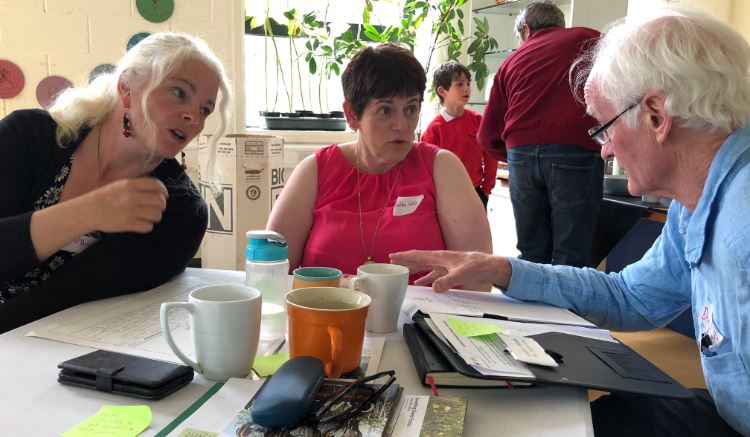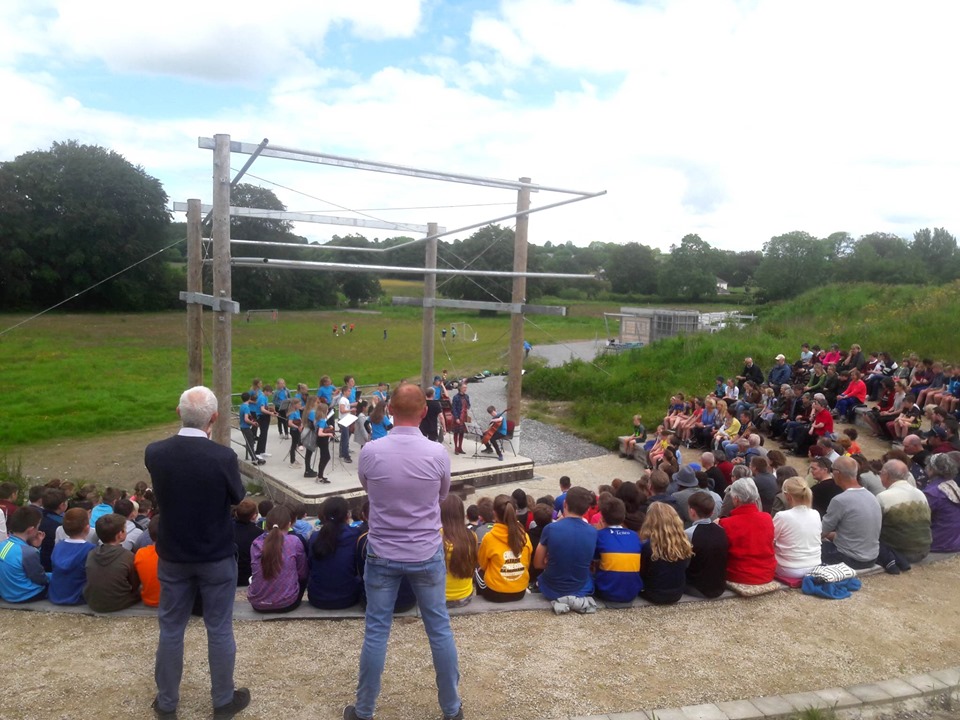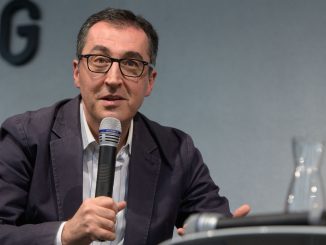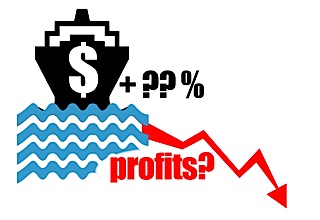
Did you know that 80% of the Bavarian landscape is managed by a voluntary team of farmers, conservationists and policy makers? This tidbit of information came from Bernd Blumlein of DVL – the German Land Care Association. it was heard at a rural dialogue event in Cloughjordan ecovillage, where ARC2020 has an office.
ARC2020 helped organise host and participate via Hannes Lorenzen. Led by the IEN (Irish Environmental Network) it also involved Sonairte, the Organic Centre, Cultivate and Ecolise – the latter two both sustainability NGOs.
With social media polarisation, the urban rural divide, fake news and host of other concerns, right about now seemed like a good time to try to create a face-to-face meet up of what can seem like increasingly disparate groups.
And because we like a challenge, we decided to add in other rural groups too, groups that may sometimes feel farming voice dominates the rural debate – from community gardens to LEADER companies to think tanks.

To encourage this dialogue, we avoided the usual conference performance – a sequence of speakers facing a row of seated people, with conversation during the coffee break. Instead, we used café tables. We had short presentations which introduced three dedicated tabled-based conversation sessions. The tables were as mixed as we could make them to encourage useful conversation between people who might not hear from each other directly. So as an example a table might have one agri-extension (e.g.Teagasc, EIP, NOTS), one environmental (e.g. IEN, Transition Towns), one farming (organic and conventional, mixture of production types), one rural development (e.g. LEADER, business networks), one other (e.g. academic, media, think tank).
We opened with an appreciation of what rural areas can and do offer – from skilled people to carbon sinks – and then introduced an organisation dedicated to bringing conservationists and farmers together, called Landcare.

The Landcare movement
Landcare started in Australia, and is thriving in Germany – especially in some of the federated states such as Bavaria.
Bernd Blumlein of DVL (the German Land Care Association) spoke about the 170 plus Landcare Associations (LCA) in Germany. These regional non-governmental associations link nature conservation groups with local farmers and local communities. Turnover is E20m a year, while 10,000 farmers, 2000 local authorities and 1200 NGOs are involved.
According to Blumlein, it started as a bridging exercise between conservationists and farmers while also maintaining “cultural landscapes together with land users and municipalities and at the same time guarantee farmers an income”.
DVL adds: “LCAs develop projects for specific landscape types including scientific measures, financial calculations and the implementation of agri-environment schemes. They apply for available funds on the state-level and supervise the implementation of activities, mostly done by local farmers, as well as monitor the project outcome.”
LCAs are voluntary, and have parity between farmers, conservationists and local authorities. Farmers receive an extra payment, while the Federal States in Germany make the payments (more so than even the EU/Pillar 2). This reduces bureaucracy, which in any case is conducted in large part by the LCA/DVL.
In some federal states, such as Bavaria, it is particularly impactful. There, there are 62 LCAs, covering more than 80% of Bavaria’s surface area. 2/3 of the state-supported landscape conservation measures are conducted via LCAs, which are performance-orientated.
The approach bears some resemblance to the regionally focused EIPs such as the BRIDE (Biodiversity Regeneration in a Dairying Environment) initiative in north east Cork.
After lunch, (which coincidentally featured an amble down to a Norwegian teenage chamber orchestra recital in the community amphitheatre – life in Cloughjordan), we used what’s called the Talanoa process. This approach to dialogue, originating from Pacific island cultures, is a very simple way to figure out the three things:
- Where are we?
- Where do we want to go?
- How do we get there?
Expanding opportunities for engagement emerged strongly from this process: there are a number of fora already happening in Ireland such as Sustainable Energy Ireland groups, beef discussion groups, Irish Farmers Association Irish Environmental Network regional meetings, an emerging rural parliament initiative that will feed into the European Rural Parliament and more places to have these engagements.
A report on this event will be released soon. A version of this article first appeared in the Irish Examiner Farming newspaper.
Rural dialogues
Rural Dialogues | Agroecology and a Living Countryside in the Netherlands
Rural Dialogues | Best Immigration Practice can help Alleviate Rural Depopulation
Rural Dialogues | What are the 3 A’s of Feeding Ourselves in Ireland?
Rural Dialogues | Radical Old Ideas Gaining Ground in New Rural America
Rural Dialogues | Transition Presents an Unprecedented Opportunity for Rural Revival





